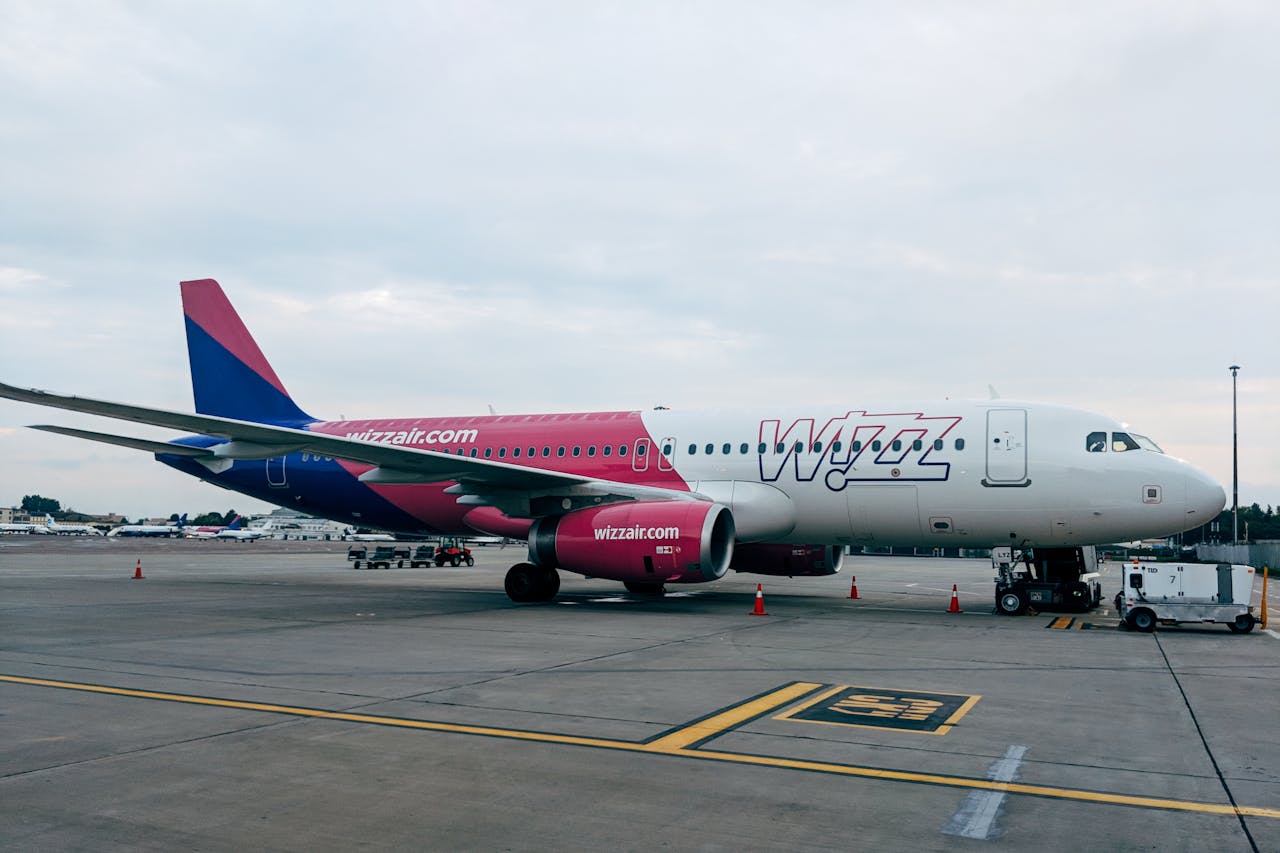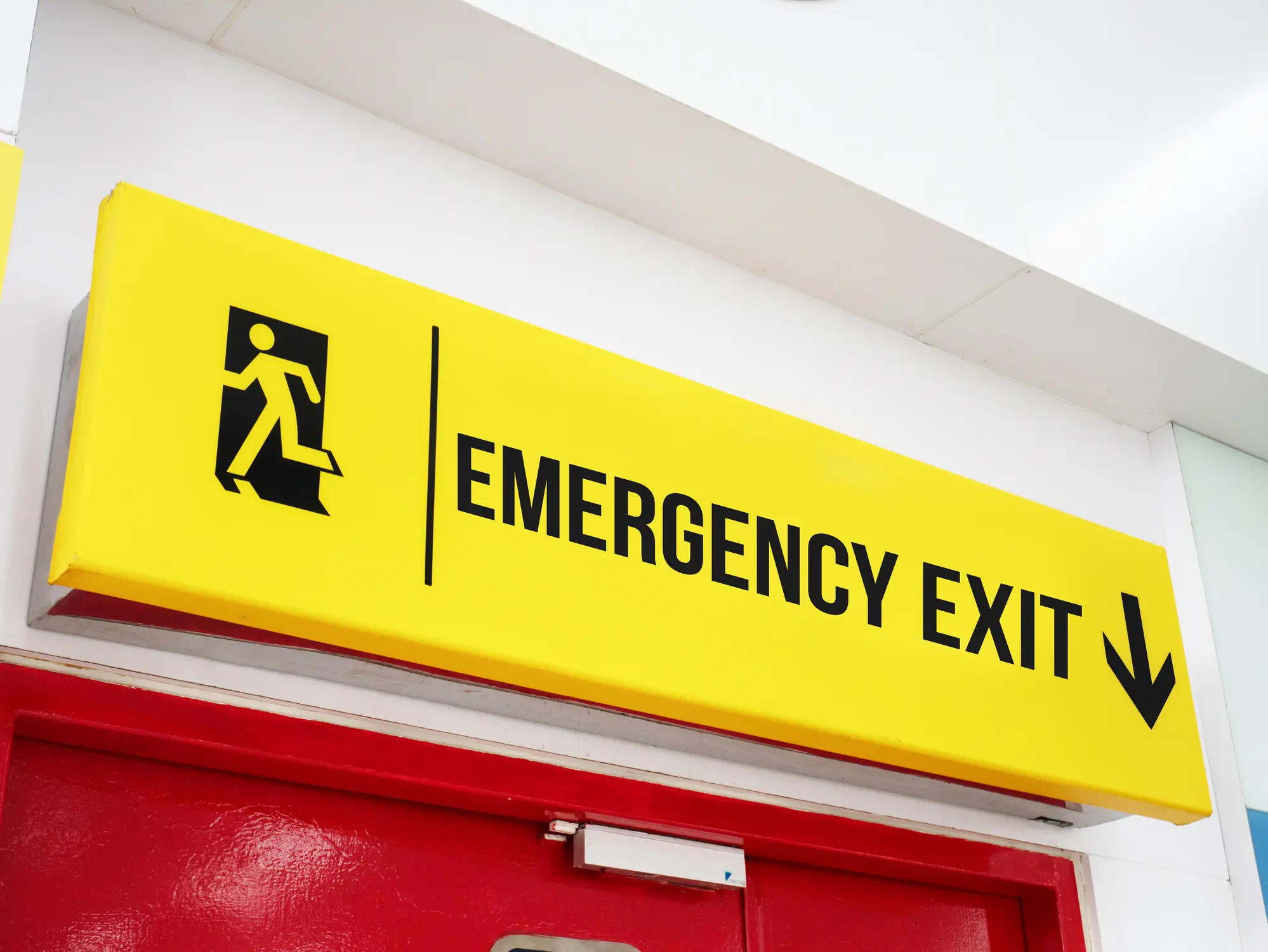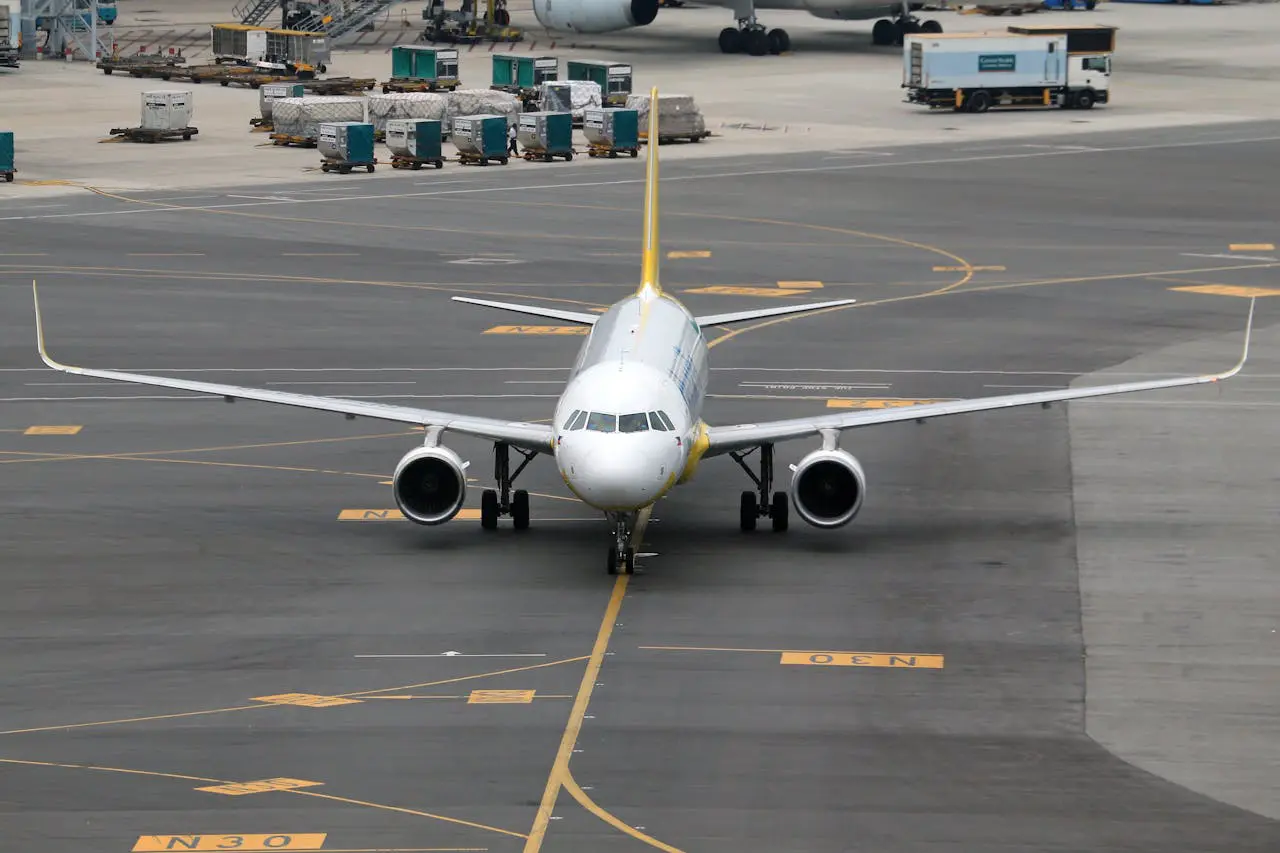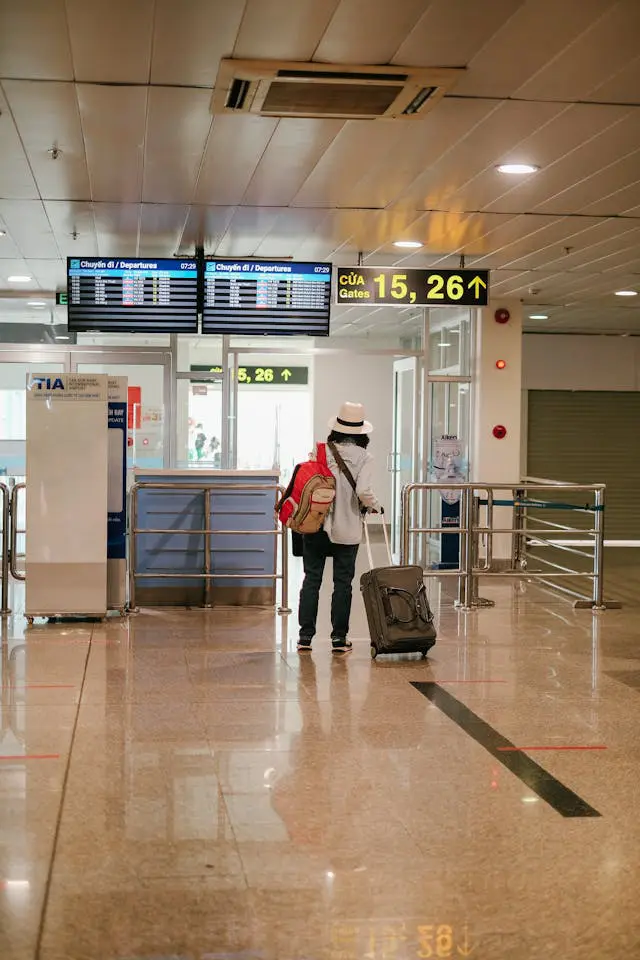I never imagined I would write about something like this – mostly because I didn’t think it was even possible. Not in a modern airport. Not with today’s security. And definitely not in Europe.
But here we are:
two passengers at Cologne/Bonn Airport actually ran onto the runway after missing their Wizz Air flight.
Yes, the runway.
Yes, after the plane had already pushed back.
Yes, in 2025.
What looked like a desperate attempt to catch a low-cost flight has now become one of the most unbelievable aviation stories in recent memory – and a stark reminder of how fragile airport safety really is.
This isn’t just another viral travel mishap.
It’s a wake-up call about behaviour, security, and the rising tension around unruly passengers in Europe.
Let’s break down what happened, why airports reacted the way they did, and what this means for the future of safe flying.
The Incident That Went Viral: What Truly Happened at Cologne/Bonn Airport
It was supposed to be an ordinary evening flight.
Wizz Air’s service from Cologne/Bonn to Bucharest is one of the many routes that connect Romanian workers, families, and students scattered across Europe.
But sometime after boarding had closed, two men arrived at the gate too late. The aircraft had already pushed back, safety checks underway, engines preparing for departure.
And then something happened that almost no one expects from regular passengers:
They smashed the glass of an emergency exit/button, forced it open, and ran onto the tarmac, chasing their own plane.
ID 96035788 | Airplane ©broewnisphoto | Dreamstime.com
The footage spread across social media in hours (I am including it below) – two figures sprinting on the apron, waving desperately at the cockpit, as ground crew scrambled to intervene.
The airport later clarified that security was never “breached” in the sense of danger to passengers or infrastructure – but that the action required immediate emergency response.
And as dramatic as the viral clip looked, the real tension lies elsewhere:
What could have happened.
Because taxiways are not a place for improvisation.
They are active zones where:
- pilots navigate with limited visibility,
- engines can injure at extraordinary force,
- vehicles criss-cross with tight schedules,
- and ground operations rely on predictability and absolute control.
“Romantic” or not, no one can run after a plane.
Not at an airport. Not anywhere.
Runways and Taxiways: Why These “Invisible Zones” Are Sacred in Aviation
Most travelers never think about what lies beyond the boarding gate. Once we step onto the jet bridge or walk across the marked path on the apron, our world shrinks into cabin luggage and seat numbers.
But behind the scenes, airports operate with military-level precision. Aprons, taxiways, and runways are the beating heart of aviation – a world of:
- active engines,
- blind spots for pilots,
- fuel trucks navigating tight spaces,
- parked aircraft being serviced with strict timing,
- and high-speed movements where one misstep can cascade into danger.
The reason airports come down so hard on unauthorized entry is simple:
- There is no margin for surprise.
A person darting across the apron can cause:
- emergency braking by the aircraft,
- last-second abort manoeuvres,
- radio alerts that freeze installations,
- delays for other planes in sequence,
- and a massive coordination reset for ground crews.
This is why even aviation professionals – people who work on the tarmac daily – must undergo specific safety training and wear regulated equipment.
Passengers are absolutely not equipped for this environment.
This isn’t drama.
It’s physics.
It’s safety.
It’s life or death within seconds.
And that is what turns the Cologne/Bonn incident from “viral” to “serious.”
Other Airport Incidents That Show How Quickly Things Can Turn Dangerous
This incident is not isolated. Runway trespass, missed-flight panic, and disruptive airport behaviour have been rising worldwide, prompting new legislation and tougher enforcement.
Madrid, 2016 – The passenger who jumped off a jet bridge to reach his plane
In 2016, at Madrid-Barajas Airport, a man who arrived late for a Ryanair flight literally jumped from the jet bridge and sprinted across the tarmac, waving his carry-on bag as if chasing a bus.
He survived, but it was still one of the most dangerous and reckless pieces of airport footage ever shared.
Canberra, Australia – A woman runs after a departing aircraft
In Australia, a female passenger stormed onto the tarmac at Canberra Airport, trying to chase a QantasLink aircraft preparing to depart. Staff had to stop the plane. She later received significant fines and criminal penalties.
Cologne/Bonn, 2024 – Activists glued themselves to the runway
Fifteen months before Wizz Air relaunched its service at the German airport, climate activists from Last Generation had cut through a fence and glued themselves to the tarmac, forcing a three-hour suspension of all flight operations.
Different motives, same underlying issue:
runway trespass is never harmless.
Europe’s Response: The New Era of Fines, Bans, and Zero Tolerance
Europe is tightening aviation rules at a pace we haven’t seen in decades.
One of the clearest examples comes from France.
In late 2025, France introduced a groundbreaking new decree imposing:
- Fines up to €10,000–€20,000 for disruptive behaviour
- Flight bans up to 4 years for serious incidents
- Penalties for ignoring crew instructions, obstructing duties, or acting aggressively
I wrote a detailed article breaking down exactly how these massive fines work and why they were introduced.
This legislation was not created because of one viral incident.
It was created because:
- unruly passenger reports have surged,
- in-flight disruptions have become more common,
- and airport security incidents are no longer rare anomalies.
France is simply the first to codify harsh consequences.
Others will follow.
And rules and fines are already in place in other countries.
These aren’t scare tactics.
They’re a recognition that aviation is a shared space where one person’s poor decision can ripple outward to hundreds.
Why Sanctions Actually Matter
It may feel heavy-handed – €20,000 for not obeying crew instructions?
A flight ban for four years?
But when you look at the big picture, sanctions are the only way to protect:
- the people inside the aircraft,
- the staff on the ground,
- and the operational safety of airports.
Aviation works because:
- people listen,
- procedures are followed,
- and unpredictability is minimized.
When one element collapses, everything else feels the shock.
The Cologne/Bonn incident is a perfect illustration: two individuals, a few reckless seconds, and suddenly, an entire airport’s operations are disrupted.
Sanctions are not about punishment.
They are about prevention.
If You Ever Miss Your Flight, Here’s What You Should Do (And Never Do)
Travel is stressful. Tight connections, long queues, gate changes – we’ve all been there. Missing a flight can feel like a small heartbreak.
So here’s the calm, grown-up version of what should happen next.
Don’t touch emergency doors.
They are for fires, evacuations, and emergencies – not for “let me catch my flight.”
Go straight to your airline’s service desk.
Most airlines will attempt:
- same-day rebooking,
- standby options,
- or discounted changes.
Check your insurance or credit card protections.
Some policies refund missed connections due to delays or incidents beyond your control.
Do not run onto the tarmac. Ever.
Not even if the plane is “right there.”
Not even if you think a quick wave will solve it.
Ask for help early.
If you’re travelling with children, mobility challenges, or tight connections, staff can often assist – if you tell them in time.
Missing a flight is expensive.
Running onto a runway is life-altering.
A Personal Note as a Romanian Traveler
This is the part that is hardest to write.
Every time a headline begins with “Romanians…” in a Western publication, my instinct is to flinch – not out of shame, but out of exhaustion.
Because for every viral incident like this, there are millions of Romanians who travel quietly, respectfully, politely. People who show up early, follow procedures, say “thank you” to the gate agent, and board calmly with their documents ready.
And yet here we are.
Two men, one very bad decision, and suddenly it becomes a talking point about nationality.
But I don’t want to dwell on stereotypes.
I want to dwell on responsibility.
Not because they are Romanian, but because they are passengers.
Because the system keeps hundreds of people safe every single flight, and one misguided choice can put all of that at risk.
And because this incident – embarrassing as it is – needs to be a lesson, not a meme.
A Conclusion And an Invitation
I wrote this article with a blend of sadness, frustration, and compassion.
Sadness, because the incident involved Romanians and will inevitably reflect on us.
Frustration, because the situation was easily avoidable.
Compassion, because panic makes people act in strange ways, and we may never know the full story behind their decision.
But above all, I wrote this because this incident is about more than two people and a missed Wizz Air flight.
It is about:
- the invisible safety systems that protect us every time we fly,
- the rising need for accountability in travel behaviour,
- and the new rules that Europe is adopting to keep air travel safe.
And here is the viral video
What do you think?
Do the new sanctions – like France’s €20,000 fines – actually help?
Or should airports and airlines focus more on communication and prevention?
I’d love to hear your thoughts.
Travel is a shared space.
So is safety.
And so is this conversation.
Photo sources (except Dreamstime): 1, 2, 3, 4








